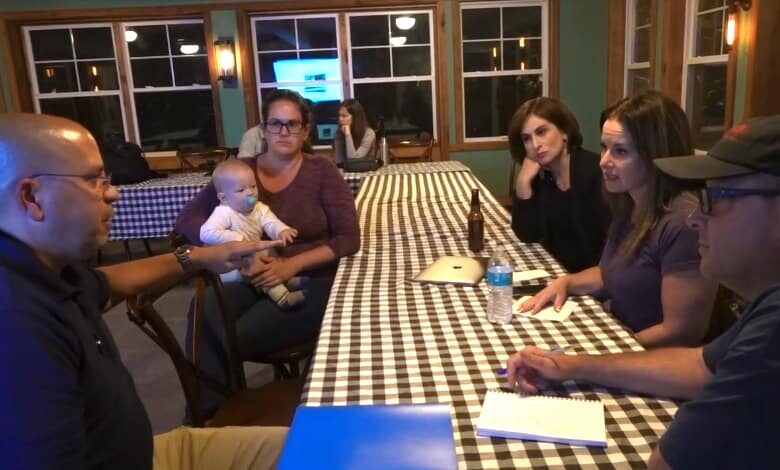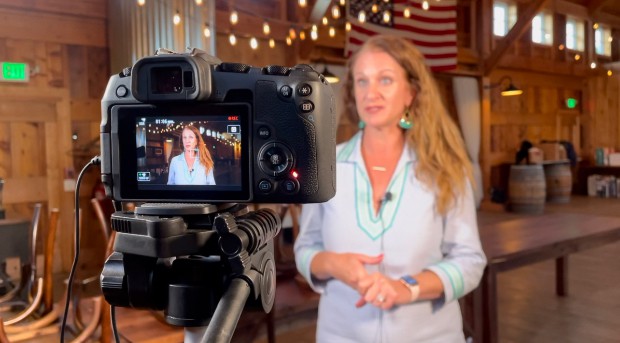Why The Federalist Went Hollywood with ‘Meet the Parents’
The site's debut documentary tells shocking tale of educators gone wild

Michael Moore, you’ve got company.
The left-leaning world of documentary films is getting some serious challengers of late. Think “No Safe Spaces,” Nick Searcy’s “Capitol Punishment,” “Rush to Judgment” and other titles that challenge the genre’s liberal orthodoxy.
Now, it’s The Federalist’s turn.
The hard-charging news site leans to the Right, and it’s telling a powerful new story via the documentary format.
HiT reached out to the site’s culture editor, Emily Jashinsky, to learn more about “Meet the Parents.” The Federalist’s debut documentary reveals how some Virginia families held their local schools accountable for its outrageous decisions.
HiT: The Federalist is getting into the documentary business … can you share what led to that decision, and are there plans for similar features?
Emily Jashinsky: We definitely plan to use this format as often as possible. We’re a small, scrappy team with no video staff or expertise so we don’t have any bureaucracy to worry about when we go into the field with our iPhones and the patchwork of limited gear we typically use for live streaming.
I probably shouldn’t say this but we don’t even have professional editing software, mostly because I hate it and prefer the simplicity of other options.
We’re learning as we go. We’re very accustomed to being places where video is important because the legacy media isn’t showing the public what’s really happening. We did that in the summer of 2020 and on January 6th and realized it was pretty easy to take our raw footage and make it even more helpful to the public.
HiT: Was it challenging to get parents to speak with you for the project, and if so what were their concerns?
Jashinsky: Not at all. The Federalist is actually inextricably intertwined with the story of Loudoun County because a lot of the early controversies stemmed from parents exposing corruption in the school system by writing articles for us or talking with our reporters. So there’s a lot of mutual respect.
The parents do a lot of media in general because they’re very confident in their case and very dedicated to spreading the message far and wide.
HiT: What was the most surprising element of the feedback you received from these parents?
Jashinsky: It’s still surprising to me how few legacy outlets are interested in telling this story because even just tactically it’s a huge red flag for the Left but, more importantly, it’s deeply compelling. So, yes, these parents have talked to a lot of journalists, but what they told us was the stories of their childhoods, their immigration journeys… It’s just surprising that more outlets aren’t clamoring to dive in.
HiT: The pandemic has been awful in so many ways, but these ‘Parents’ argue it let them see what was happening in their schools for the first time… can you share more about this aspect of the film?
Jashinsky: We tried to subtly highlight which issues motivated the parents to get so involved. For some of them, it was school closures, for others it was Critical Race Theory or transgender bathrooms or sexually explicit library material.
But for all of them, it’s the combination of those issues that lights the fire. But the reality that parents were exposed to daily curricula over Zoom meant a flood of tips came pouring in and a ton of parents were transformed into activists at the drop of a hat because it happened in front of them, and the threat wasn’t nebulous or abstract, it was crystal clear.
HiT: For years conservatives ceded pop culture to the Left. That’s changing, witness Nick Searcy’s independent work, The Daily Wire’s new entertainment division, etc. Why? What changed within the movement?
Jashinsky: The right is getting more access to resources it hasn’t had in the past, primarily talent and then secondarily capital earmarked for projects that back the talent. And it’s the left’s fault.
When Disney dropped Gina Carano, talent and capital flowed to The Daily Wire, which is now developing a serious landing pad for anti-woke artists and producers who see the demand from creators and consumers.
In our case at The Federalist, we understand popular culture better than any other outlet on the right, not in an anthropological way, but as lovers of middlebrow (and lowbrow) American art. We know much of it’s trash, but we’re going to be able to engage with Lana Del Rey or Kim Kardashian or John Cena better because their work is a big part of our entertainment diet anyway.
Which means we also understand the formats their work is packaged in.
HiT: Talk about the power of a documentary … how it can impact viewers in a way that perhaps a beautifully crafted op-ed sometimes can’t.
Jashinsky: I’m personally a huge documentary buff and am constantly chugging short form videos from Vice and Vox. If you look under Snapchat’s popular Discover section, which is littered with postmodern garbage, a lot of it is documentary-style content.
I think documentaries, like podcasts, inherently signal to people they’re telling a fuller story than news articles and headlines, so in the era of media distrust, they’re thriving. You can see and hear from the people involved and adjudicate their honesty or guilt yourself.
We may not have a video division, but we have a great eye for underreported stories and are on the ground in so many different places where those stories are playing out, so we’re well-situated to bring them to life.

